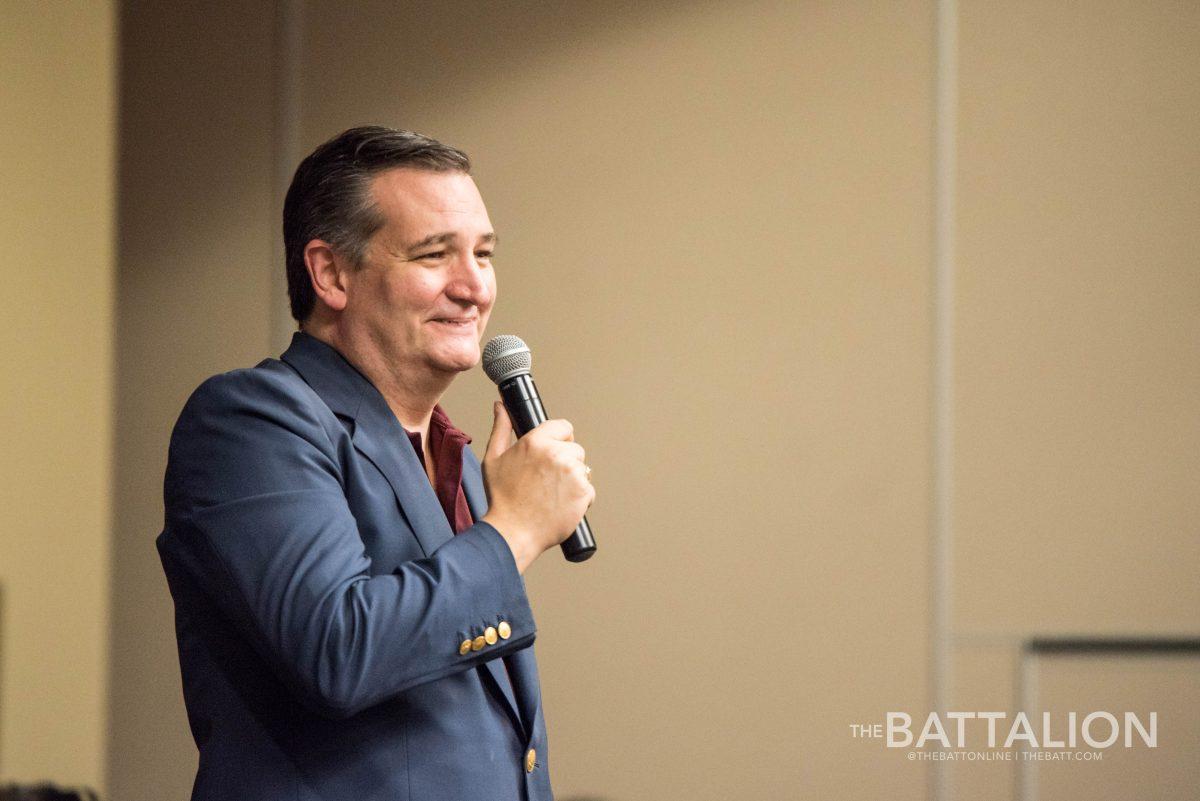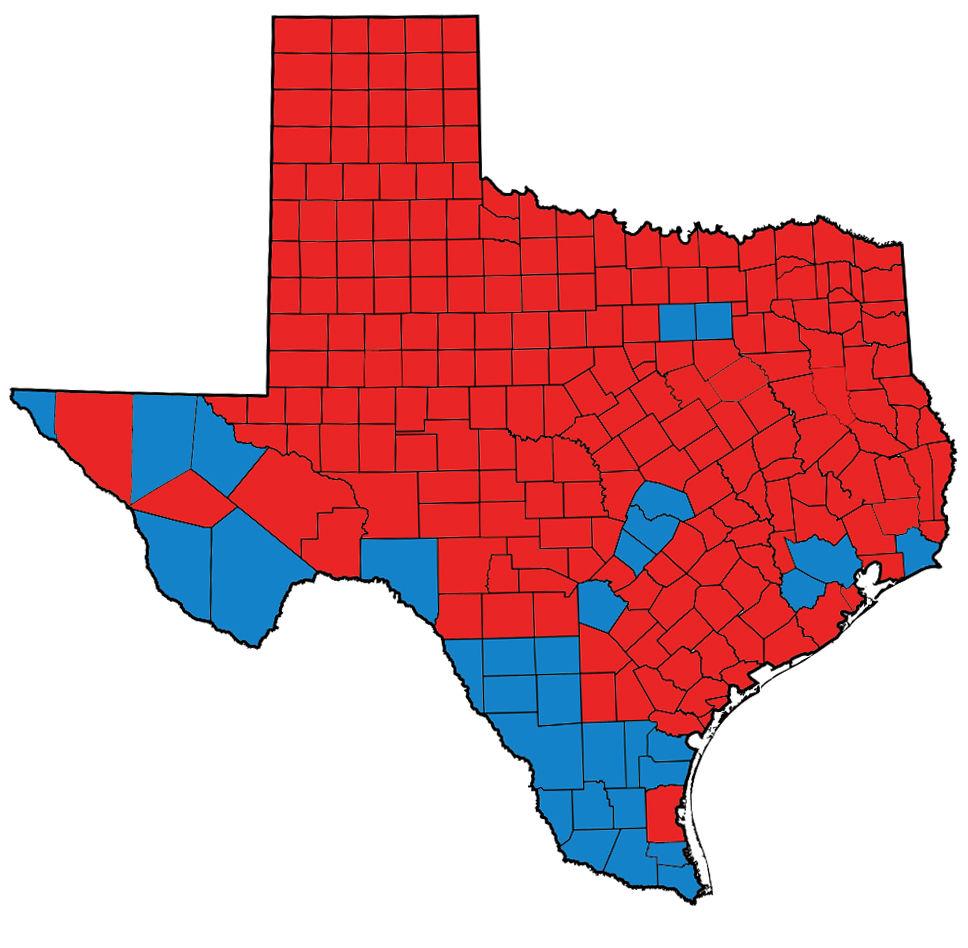Texas Republican Ted Cruz is keeping his seat in the U.S. Senate, but Democratic challenger Beto O’Rourke did not make it easy.
The Senate race was one of the closest Texas has seen in decades, with Cruz receiving roughly 51 percent of the vote compared to O’Rourke’s 48 percent. Over 8 million Texans came out to vote this year, putting turnout for the 2018 midterms far above that of the 2010 and 2014 elections, neither of which surpassed 5 million.
Kirby Goidel, professor of political communication and director of Texas A&M’s Public Policy Research Institute, said the 3.9 million votes racked up by O’Rourke represent a serious accomplishment for a Texas Democrat in a statewide non-presidential race. Goidel compared O’Rourke’s total to the 1.8 million votes cast for Wendy Davis in the 2014 governor race.
“That’s a pretty remarkable thing for a candidate to do, and Cruz had to respond to it, so it made it one of the most exciting races in the country and the high rate of participation is a good thing,” Goidel said.
In Brazos County, Cruz claimed victory by a wider margin, taking 55.8 percent of the county’s 63,998 votes. In Texas A&M’s Memorial Student Center, the Election Day voting line stretched all the way back the Flag Room, and some students waited for as long as two hours to cast their ballots.
Mechanical engineering senior Ryan Zimmerman said choosing between Cruz and O’Rourke was no easy task, but after researching both candidates’ platforms, he ultimately sided with the incumbent.
“I appreciate Ted Cruz and what he does and his lack of compromise in regards to politics,” Zimmerman said. “[He has] a very clean slate, and it’s very policy focused, which doesn’t make him the most likable person, but it is definitely what politics should be.”
Industrial distribution senior Pablo Flores became a U.S. citizen last semester, making this election season his first opportunity to cast a vote. Flores said he opted for O’Rourke after observing the level of control Republicans have exercised over the state in recent years.
“I have a lot of conservative values but I believe in the balance of power and I don’t think that is there with Texas, so I think that’s why a lot of young people are out here because they see that issue,” Flores said.
Regardless of the ultimate outcome, Zimmerman said voting presents a chance for many students to get more involved in their communities.
“I appreciate the opportunity to actually contribute as a citizen,” Zimmerman said. “Being a student, I don’t have to go to jury duty; I don’t pay substantial taxes. I love the ability to vocalize who I am as an American.”
While the election of Cruz and 50 other republican candidates preserved the GOP’s control of the Senate, Democrats took over the House of Representatives, claiming 222 of 435 total seats.
According to Goidel, this new division of congressional power will likely exacerbate the existing partisanship and polarization influencing American politics.
“Now you move from unified government control to divided control of government, and with that it makes it harder for someone to govern, especially someone like President Trump, who has played largely to his base, and hasn’t tried to reach out to the other side very often,” Goidel said.
This partisanship played a role in driving up voter turnout and activism on both sides of the political spectrum during this year’s election cycle, Goidel said.
“Typically you might say, ‘higher participation, what a great thing,’ but its higher participation motivated by a fear of the other side and a dislike of the other side and a concern that the other side is going to undermine democracy or undermine progress, so it’s a little troubling that way,” Goidel said.
In the U.S. House Race for Texas’ 17th district, Rep. Bill Flores kept his seat by a comfortable margin, receiving 56.92% percent of the vote.
Representatives Kyle Kacal and John Raney were re-elected to the Texas State Legislature, along with State Senator Charles Schwertner. Each defeated their Democratic challengers by at least 12 percentage points.
In College Station, Elianor Vessali was elected to City Council Place 4 by a thin margin, receiving 51 percent of the vote compared to Joe Guerra Jr.’s 49 percent. Elizabeth Cunha took received 40 percent of the vote for Place 6, putting her ahead of opponents Dennis Maloney and Craig Hall. Since none of the Place 6 candidates received a majority of the vote, the race will be decided with a runoff between Cunha and the first runner up.
Gov. Greg Abbott and Lt. Governor Dan Patrick were also re-elected, with Abbott receiving roughly 56 percent of the vote and Patrick claiming a more narrow majority with 51 percent.
In his victory speech, Abbott addressed the increasingly divisive nature of politics across Texas and the rest of the nation, encouraging other elected officials to commit to a more bipartisan approach in the future.
“It’s been the red team versus the blue team,” Abbott said. “Well now that elections are over, and the people have spoken, it is time for all of us to unite under the best banner of them all, and that is the great flag of the Lone Star State.”
More details and results for Brazos County are available at brazosvotes.org/results.
Jordan Burnham, Kathryn Whitlock, Anthony Pangonas and Megan Rodriguez contributed to this report.
Cruz re-elected in high-profile Senate race
November 7, 2018
Photo by Photo by Cassie Stricker
At time of publication, 97 percent of Texas precincts had reported results totaling 8,268,369 votes. 4.2 million of those were cast for Cruz.
0
Donate to The Battalion
$2790
$5000
Contributed
Our Goal
Your donation will support the student journalists of Texas A&M University - College Station. Your contribution will allow us to purchase equipment and cover our annual website hosting costs, in addition to paying freelance staffers for their work, travel costs for coverage and more!
More to Discover











